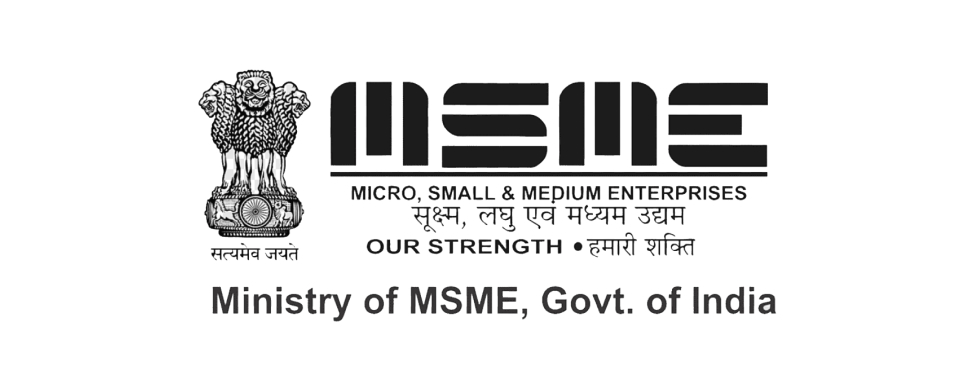Content marketing is an increasingly important factor in developing and sustaining a successful business website. In today’s digital world, having great content can be the difference between success and failure. With content marketing, you can increase your website’s visibility and drive more traffic, leads, and conversions. This blog post will explore how you can use content marketing to boost your business website and achieve better results. We’ll look at strategies such as developing keyword-rich content, optimizing for search engines, and creating content that resonates with your target audience.
Why content marketing is important
In today’s digital world, content is king. Customers are not interested in being bombarded with irrelevant and aggressive sales pitches anymore. They want value and engaging experiences from brands they trust. This is where content marketing comes into play. Content marketing is the art of creating and sharing valuable, relevant, and consistent content that will attract and retain a clearly defined audience – ultimately driving profitable customer action.
By providing informative and valuable content, you are able to establish your brand as an authority and build trust with potential customers. Content marketing allows you to connect with your target audience and develop meaningful relationships with them. This results in increased brand awareness, website traffic, and lead generation, which in turn leads to greater sales and revenue.
Moreover, search engines like Google reward businesses that consistently create quality content. The more valuable content you create and share on your website and social media platforms, the higher your website ranks in search engine results. This improves your online visibility and enhances your online reputation.
In summary, content marketing is essential for businesses that want to establish their online presence and engage with customers effectively. By focusing on creating value, instead of hard selling, you can attract more potential customers and build a loyal customer base. In the next section, we will explore the role content marketing plays in website development.
What role it plays in website development
When it comes to developing a website for your business, it’s important to have a plan for your content marketing strategy. Your website is your online storefront, and your content is the way that you connect with potential customers and establish your brand.
Content marketing can help to boost your website in a number of ways. For one, it can increase your search engine rankings by providing relevant, keyword-rich content that matches the queries of your target audience. This can drive more traffic to your site, increasing your visibility and improving your chances of converting visitors into customers.
Content marketing can also help to establish your authority within your industry. By creating high-quality content that is both informative and engaging, you can demonstrate your expertise and provide value to your audience. This can help to build trust with potential customers, making them more likely to do business with you.
In addition, content marketing can help to create a sense of community around your brand. By providing content that encourages interaction and engagement, such as through social media or comments sections, you can foster a sense of connection and loyalty among your audience.
Overall, content marketing is a crucial component of website development. By investing in high-quality content that is optimized for search engines, engaging for your audience, and aligned with your brand values, you can create a website that drives traffic, builds authority, and establishes your business as a leader in your industry.
How to get started with content marketing
So, you’re convinced that content marketing is important for your business website. Now what? Here are some tips to get started:
1. Define your audience: Who are you targeting with your content? What are their needs, challenges, and interests? Understanding your audience is crucial for creating content that resonates with them.
2. Set your goals: What do you want to achieve with your content marketing efforts? Is it increased website traffic, lead generation, brand awareness, or something else? Set specific and measurable goals to guide your content creation and measure your success.
3. Develop a content strategy: A content strategy outlines the types of content you’ll create, the channels you’ll use to distribute it, and the topics you’ll cover. It helps ensure that your content is aligned with your goals and tailored to your audience.
4. Create high-quality content: Quality matters more than quantity when it comes to content marketing. Your content should be informative, engaging, and well-written. Consider different formats, such as blog posts, videos, infographics, or podcasts, to cater to different preferences.
5. Optimize for search engines: Search engine optimization is key to ensuring that your content is discoverable by your target audience. Use relevant keywords, optimize your titles and meta descriptions, and ensure that your website’s technical SEO is in order.
6. Promote your content: Creating great content isn’t enough; you also need to promote it to reach your audience. Share your content on social media, email newsletters, and other relevant channels to amplify its reach.
By following these steps, you can get started with content marketing and begin to see the benefits it can bring to your business website. Remember, it’s a long-term investment that requires patience and consistency, but it’s well worth it.
What to consider when creating content
Creating high-quality and engaging content is crucial in a successful content marketing strategy. Here are some things to keep in mind when developing content for your business website:
1. Audience: Who is your target audience? What kind of content would they be interested in? Keep in mind their age, gender, location, interests, and other demographics when creating content.
2. Value: Your content should add value to your audience. Offer solutions to their problems, provide relevant information, or simply entertain them.
3. Relevance: Make sure your content is relevant to your industry or niche. Don’t stray too far from your expertise, or your audience may lose interest.
4. Brand voice: Your content should reflect your brand’s personality and tone. This consistency helps to build brand recognition and loyalty.
5. Formatting: Consider the format of your content. Will it be a blog post, video, infographic, or something else? Each format has its own strengths and weaknesses, so choose the best one for your message.
6. SEO: Optimizing your content for search engines is crucial in content marketing. Include keywords in your content, use meta descriptions and title tags, and add internal and external links.
By keeping these factors in mind when creating content, you can ensure that your content marketing efforts are successful in engaging and converting your audience.
How to measure the success of your content marketing
Once you’ve started implementing content marketing into your business website, it’s important to measure its success to see what’s working and what’s not. Here are a few metrics you can use to measure the success of your content marketing efforts:
1. Website traffic: One of the easiest ways to see if your content marketing is working is to look at your website traffic. If your website traffic is increasing over time, it’s a good sign that your content is resonating with your audience.
2. Engagement metrics: Engagement metrics such as bounce rate, time on site, and pages per session can give you a good idea of how engaged your audience is with your content. If these metrics are high, it’s a good sign that your content is keeping people interested.
3. Conversions: Ultimately, the goal of your content marketing is to convert visitors into customers. If you’re seeing an increase in conversions over time, it’s a sign that your content is effective at driving sales.
4. Social media metrics: If you’re sharing your content on social media, it’s important to track your social media metrics such as likes, shares, and comments. If these metrics are high, it’s a good sign that your content is resonating with your social media followers.
5. Email marketing metrics: If you’re using email marketing to promote your content, it’s important to track your email marketing metrics such as open rates, click-through rates, and conversion rates. If these metrics are high, it’s a good sign that your content is effective at driving email subscribers to take action.
By tracking these metrics over time, you can get a good idea of how your content marketing efforts are performing and make adjustments as needed to ensure that your content is continuing to resonate with your audience.
Conclusion
Content marketing is an essential element for any brand’s digital presence in the current digital age. It’s a technique that involves creating and sharing relevant, informative, and engaging content to attract and retain a clearly defined audience and ultimately drive profitable customer action.
At Activision, we recognize the significance of content marketing as it can establish an authentic connection between the brand and the target audience. By producing useful and entertaining content, we aim to increase engagement with our audience and build trust that ultimately drives sales and loyalty.
With our focus on creating quality content, we can not only attract potential customers but also retain existing ones. By providing value-added information, we help educate our audience, making them more informed consumers who can make better purchasing decisions.
Overall, Content marketing is not only about increasing the reach and awareness of a brand but also establishing a relationship with customers through valuable, informative, and relevant content that inspires trust, loyalty, and ultimately drive sales. And here at Activision, we make sure we do just that.






